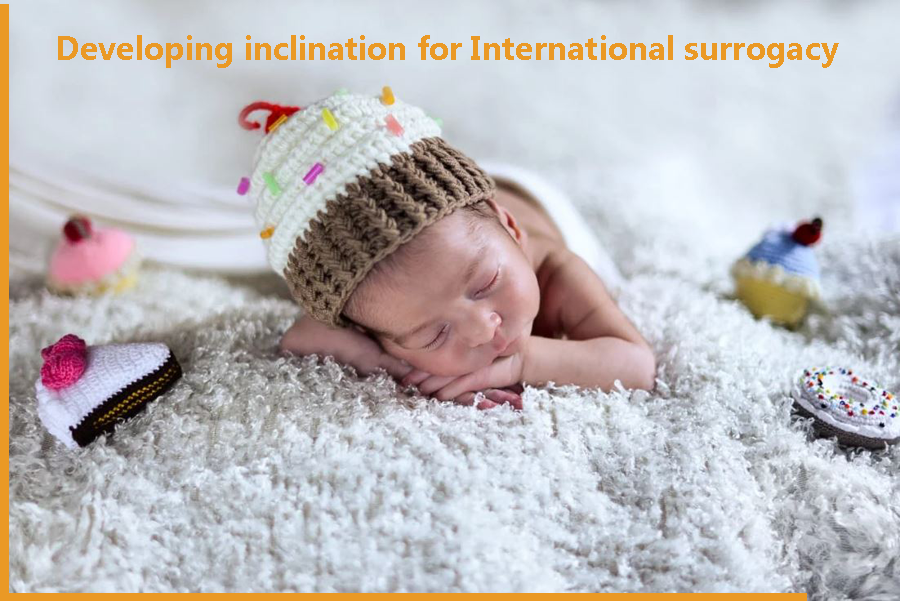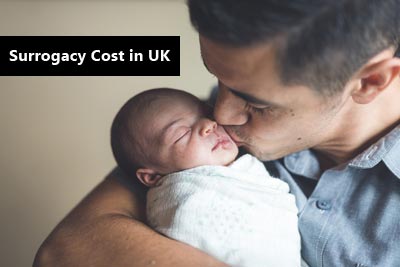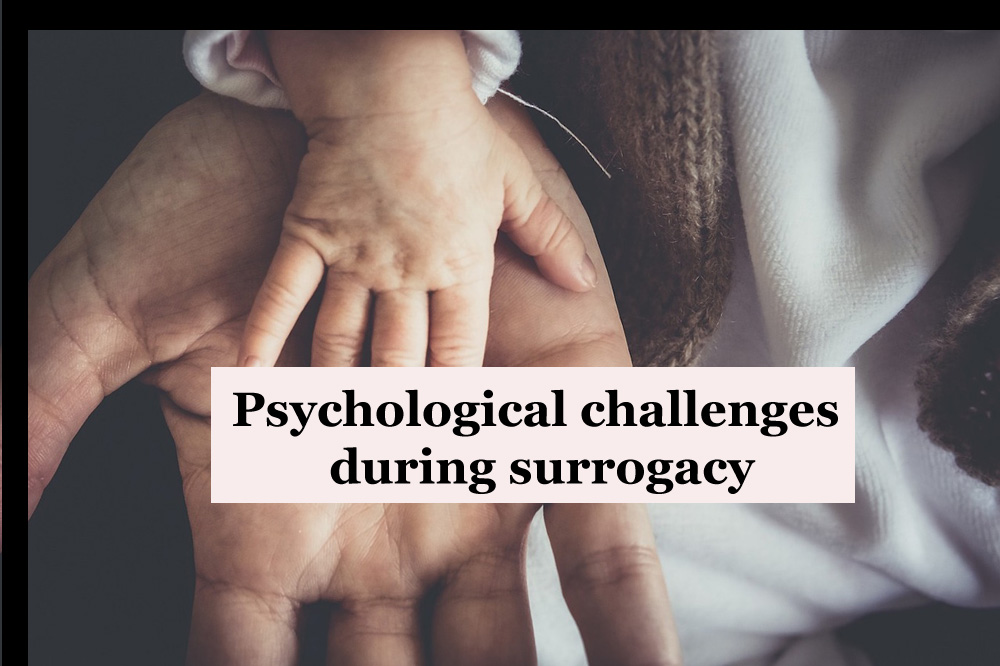Surrogacy in Georgia: How to start your journey in the right manner?
International surrogacy has gained some huge popularity in recent years given the introduction of some highly favorable surrogacy environments within certain countries. This is how numerous people and couples from all over the world who want to become parents have found hope in Georgia through surrogacy.
Georgia is a desirable surrogacy destination because of its comparatively lenient surrogacy laws and its excellent medical facilities, which are less expensive than in many Western nations. But navigating the international surrogacy process can be intimidating, particularly for those who are doing it for the first time. Here are some essential pointers to get you started on this path with clarity and confidence.
Hope in Georgia through surrogacy
-
Improve your knowledge regarding Georgia’s surrogacy laws
It’s not just about Georgia and you cannot succeed with international surrogacy without proper knowledge regarding surrogacy laws. So, even in this case, the first and most important step is to become familiar with Georgia’s surrogacy laws. Georgia is among the few nations where intended parents’ rights are adequately safeguarded and surrogacy is lawfully permitted. Nonetheless, the following prerequisites and conditions must be fulfilled:
- Only married or civilly partnered heterosexual couples are eligible to use surrogacy.
- The child must share a genetic makeup with at least one parent.
- The intended parents must come along with a parental order to confirm their parental status with the child prior to its birth
Having the right understanding of these legal matters is really important if you are looking for the desired results and success in your surrogacy journey.
-
Make sure you know the surrogacy agency well
You cannot deny the fact that pursuing surrogacy all on your own is a near-impossible task. Hence, it’s always advisable to pursue this path with the help of a surrogacy agency. This is where you must look out for agencies with a good history, client reviews, and transparent procedures. In addition to helping locate a surrogate, a reputable agency or clinic will manage medical screenings, offer counselling services, and deliver legal support. Make sure you do your homework well and think about travelling to Georgia in advance to personally meet with possible agencies or clinics.
3. Exploring the legal matters with the professional
Do know that a country like Georgia may come up with certain legal challenges on your way to parenthood. Also, given to low clarity regarding laws, you may sometime find it hard to understand. Hence, you must speak with a surrogacy attorney here. On the other side, legal advice is very helpful when drafting contracts, navigating the Georgian legal system, and making sure that everyone’s rights are secured. On the other side, your attorney can also help with any potential legal challenges and streamline the process of obtaining the required court order.
4. Planning your finances is important
The surrogacy procedure would come with random costs related to procedures like IVF, egg or sperm donation and several other procedures. Although Georgia has more reasonably priced options than many other countries, you may still have to pay a certain amount. So it’s important to plan your spending wisely. Medical procedures, surrogate compensation, attorney fees, travel expenses, and accommodation in Georgia are all included in the cost. Don’t forget to account for unanticipated expenses like prolonged stays in the nation or extra medical care. Important actions include making a budget and putting money aside for emergencies.
5. Surrogacy and its associated medical procedures
Surrogacy also includes a list of medical procedures that you may or may not know prior. Hence, it is always recommended to learn about the medical facets of surrogacy, such as embryo transfer, in vitro fertilization (IVF), and prenatal care. Georgia has excellent medical standards, particularly in terms of fertility clinics; however, it is crucial to talk to your selected clinic about all medical procedures, possible risks, and success rates. Make sure your surrogate has top-notch medical care for the duration of the pregnancy.
6. Knowing your Surrogate is important
Your surrogate is surely the centre point of the entire surrogacy procedure. So, if at all possible, focus on creating a good emotional bond with the surrogate. That said, your clinic or agency may be able to help with this. All parties involved in surrogacy can greatly benefit from open communication and mutual respect. Talk about what’s expected of you; decide on how and when to communicate, and express gratitude for the amazing gift your surrogate is giving.
-
Get Ready for Your Georgia Visit
Your surrogacy journey will take some sweet time to get through. That said, it may go from a few weeks to a few months. So, be ready for a prolonged stay in Georgia if you’re coming from overseas, particularly in the final stages of your pregnancy and following delivery. Examine your accommodation options, learn about the requirements for obtaining a visa, and acquaint yourself with the customs and culture of the area. Do know that this planning can help you have a more comfortable stay and experience less stress during the most important stages of the surrogacy procedure.
8. Dealing with the post-birth procedures
The surrogacy process doesn’t end with the delivery of the child. Following the birth of your child, you will need to take certain legal actions, like registering the birth and getting the paperwork you need to go back home. The procedures involved in this process will change based on the laws in your home country about international surrogacy. To guarantee that all legal matters are handled correctly and on time, collaborate closely with your agency and attorney.
-
Taking care of the emotions and feelings
Don’t forget to take care of your mental and emotional health during the entire procedure. Moreover, getting along through surrogacy can be emotionally draining. In order to manage the emotional highs and lows, think about getting psychological support for both you and your partner. Numerous surrogacy agencies provide counselling services or can refer you to qualified local specialists.
10. Make Future Plans
The child will come as a sheer blessing in your life. Yet you must make some plans regarding its future as well. Hence, consider in advance how and when you will share your child’s surrogacy story with them. Many experts advise being upfront and using language appropriate for the child’s age about their origins from an early age. You can make sure that your child has a positive understanding of their unique story as they grow up by preparing for this conversation.
Final words
Surrogacy in Georgia is certainly a beautiful experience. Also, many people who struggle with infertility in Georgia can become parents through surrogacy, which offers a realistic and hopeful path. You can make this difficult process go more smoothly if you know the legal landscape, pick the right partners for the journey, and prepare financially and emotionally. Recall that becoming a surrogate is a journey of hope, resiliency, and, in the end, love rather than merely a medical or legal procedure. Still, this journey can result in the happy addition of a new family member with proper planning and support.








 The
The 
 The surrogacy laws in the UK are quite complicated for many. That said, upon returning to the UK with their child, parents who have gone through surrogacy overseas have to apply for a parental order to secure their legal rights as guardians.
The surrogacy laws in the UK are quite complicated for many. That said, upon returning to the UK with their child, parents who have gone through surrogacy overseas have to apply for a parental order to secure their legal rights as guardians.

 The importance of self-care is quite imperative during every aspect of life and not just a surrogacy program. That said, self-care is basic for keeping up mental focus and health. For surrogates, this implies taking care of your body through proper nutrition, standard workout, and adequate rest.
The importance of self-care is quite imperative during every aspect of life and not just a surrogacy program. That said, self-care is basic for keeping up mental focus and health. For surrogates, this implies taking care of your body through proper nutrition, standard workout, and adequate rest. Information is the key in today’s era. Whereas remaining educated is important, overconsumption of information and data can lead to data over-burden and increased uneasiness. This is where you must constrain your research to trustworthy sources and avoid delving as well profoundly into online groups or forums that will help you avoid unnecessary issues. Instead, count on your surrogacy agency and medical experts for precise and up-to-date information.
Information is the key in today’s era. Whereas remaining educated is important, overconsumption of information and data can lead to data over-burden and increased uneasiness. This is where you must constrain your research to trustworthy sources and avoid delving as well profoundly into online groups or forums that will help you avoid unnecessary issues. Instead, count on your surrogacy agency and medical experts for precise and up-to-date information.

 While surrogacy has proved its effectiveness in helping numerous couples reach parenthood, it has also led to the development of diverse family structures. At the same time, it also allows people and couples from different backgrounds and circumstances to fulfil their dreams of having children. Moreover, for same-sex couples, surrogacy offers a way to parenthood that includes a genetic connection to at least one partner. Now this is something that other alternatives like adoption may not offer.
While surrogacy has proved its effectiveness in helping numerous couples reach parenthood, it has also led to the development of diverse family structures. At the same time, it also allows people and couples from different backgrounds and circumstances to fulfil their dreams of having children. Moreover, for same-sex couples, surrogacy offers a way to parenthood that includes a genetic connection to at least one partner. Now this is something that other alternatives like adoption may not offer. In any case, surrogacy’s transformative shift isn’t without its challenges. Moreover, the emotional journey for both
In any case, surrogacy’s transformative shift isn’t without its challenges. Moreover, the emotional journey for both 

 You can’t pick a good accommodation without setting the required budget. Moreover, as you look for the
You can’t pick a good accommodation without setting the required budget. Moreover, as you look for the 

 The
The 


 Russia does have its pool of surrogate mothers. Still, in reality, most of the surrogates here have their origins in Ukraine. In any case, the strife has led to a decrease in the number of Ukrainian women willing to take an interest in surrogacy programs in Russia. Moreover, the insecurity and infirmity in Ukraine have made numerous Ukrainian ladies reluctant to travel to Russia for surrogacy programs.
Russia does have its pool of surrogate mothers. Still, in reality, most of the surrogates here have their origins in Ukraine. In any case, the strife has led to a decrease in the number of Ukrainian women willing to take an interest in surrogacy programs in Russia. Moreover, the insecurity and infirmity in Ukraine have made numerous Ukrainian ladies reluctant to travel to Russia for surrogacy programs. The cost related to surrogacy has been on the rise recently. As the request for surrogacy in Russia proceeds to rise amid the strife, the costs related to surrogacy programs have also expanded. Moreover, surrogacy agencies and clinics are confronting more noteworthy demands and are thus raising their costs to meet the expectations of the intended parents. Also, this increase in costs has made surrogacy less available to a few couples only who were already considering it as an alternative for starting a family.
The cost related to surrogacy has been on the rise recently. As the request for surrogacy in Russia proceeds to rise amid the strife, the costs related to surrogacy programs have also expanded. Moreover, surrogacy agencies and clinics are confronting more noteworthy demands and are thus raising their costs to meet the expectations of the intended parents. Also, this increase in costs has made surrogacy less available to a few couples only who were already considering it as an alternative for starting a family.



 Social media also plays a key role in forming recognitions and desires about surrogacy. That said, stories shared by surrogates or intended parents on platforms like Instagram or Facebook frequently highlight the positive elements of surrogacy, now and then portraying an idealized picture. Whereas these stories can be motivating, they can also make improbable desires about the surrogacy journey. Hence, it’s critical for people considering surrogacy to recognize that each journey is one of a kind and may not continuously balance with the accounts showcased on social media.
Social media also plays a key role in forming recognitions and desires about surrogacy. That said, stories shared by surrogates or intended parents on platforms like Instagram or Facebook frequently highlight the positive elements of surrogacy, now and then portraying an idealized picture. Whereas these stories can be motivating, they can also make improbable desires about the surrogacy journey. Hence, it’s critical for people considering surrogacy to recognize that each journey is one of a kind and may not continuously balance with the accounts showcased on social media. Through social media, stories and experiences from diverse social backgrounds are shared, contributing to a more comprehensive understanding of surrogacy. In the end, this global perspective can be edifying for those considering surrogacy, helping them understand this practice totally in a different social and legal setting.
Through social media, stories and experiences from diverse social backgrounds are shared, contributing to a more comprehensive understanding of surrogacy. In the end, this global perspective can be edifying for those considering surrogacy, helping them understand this practice totally in a different social and legal setting.